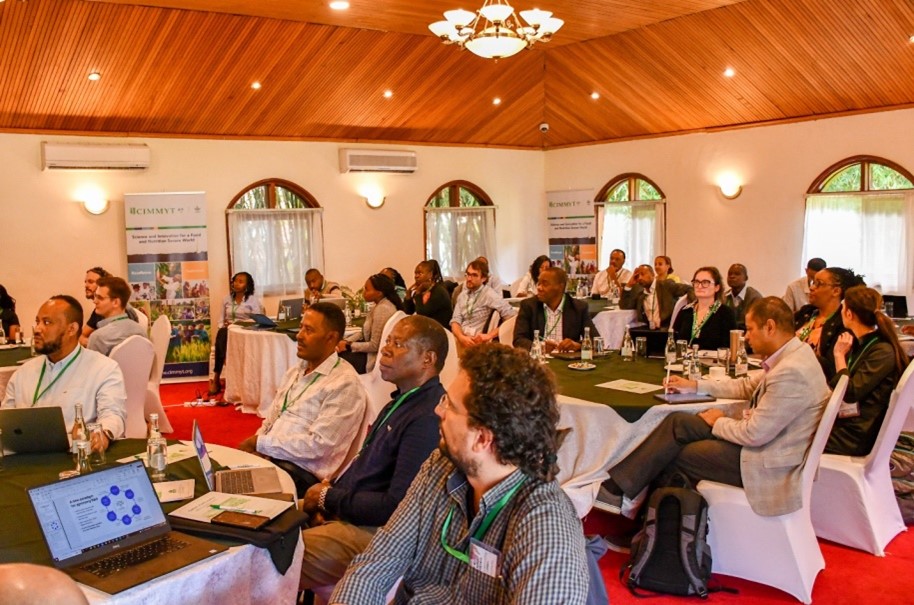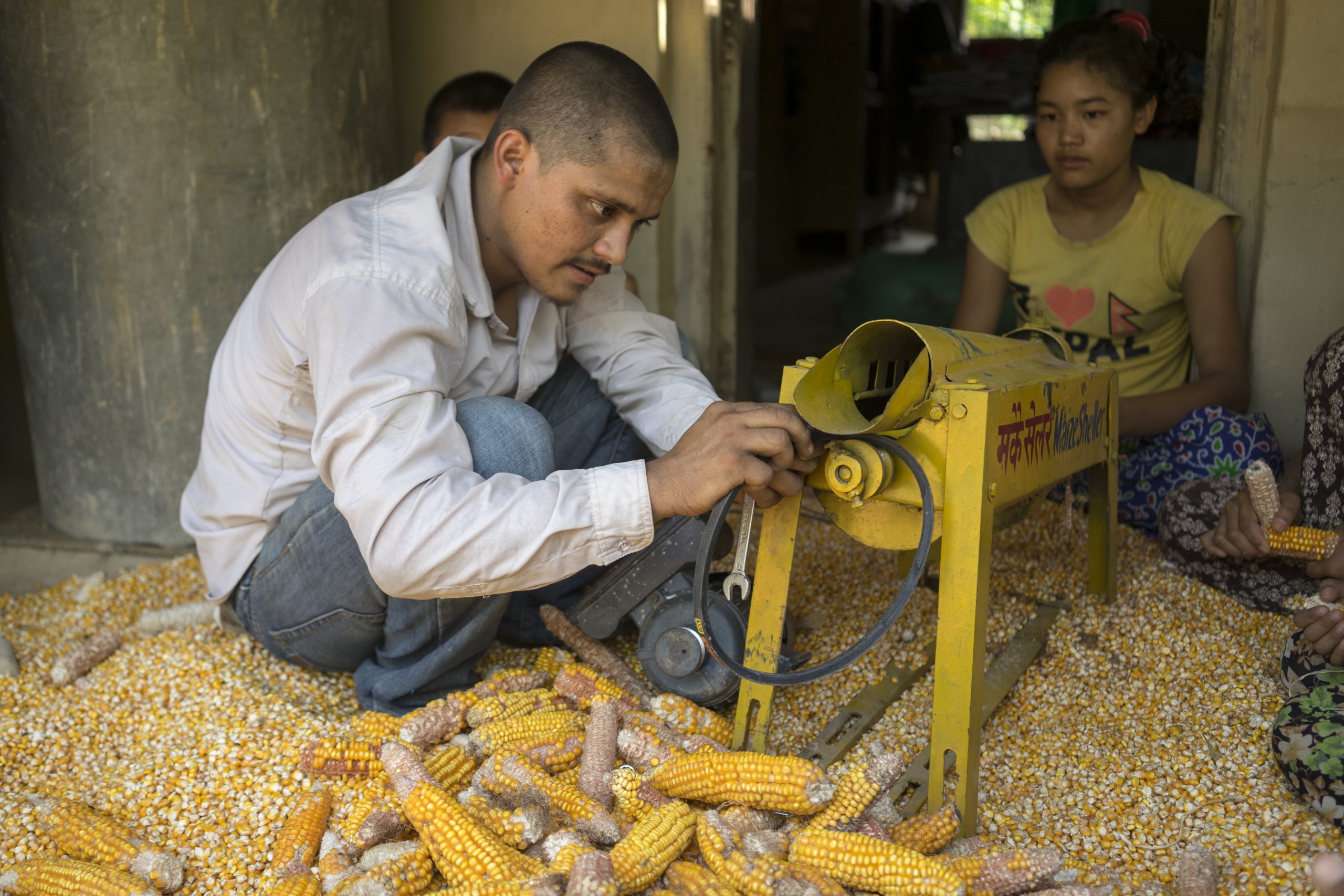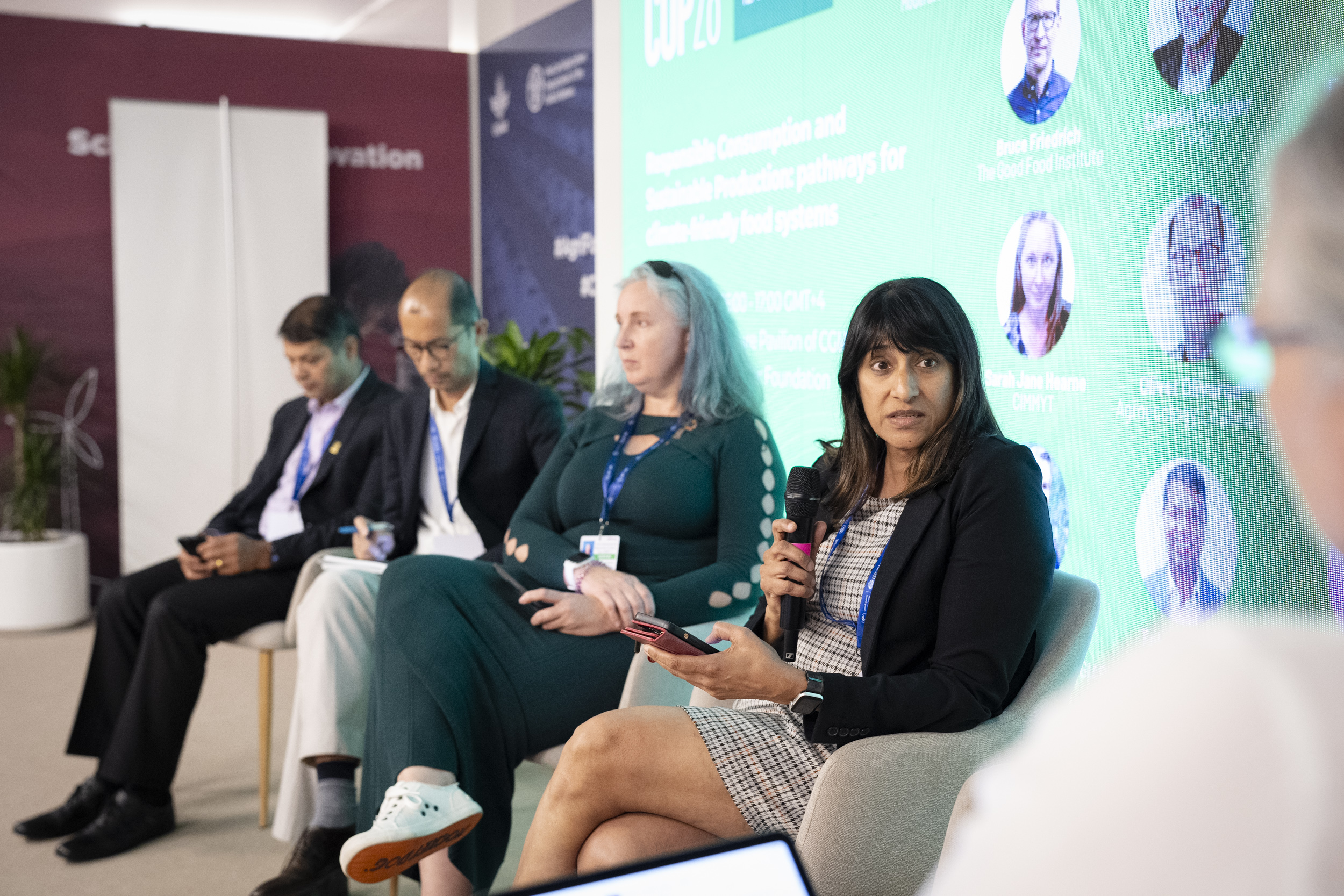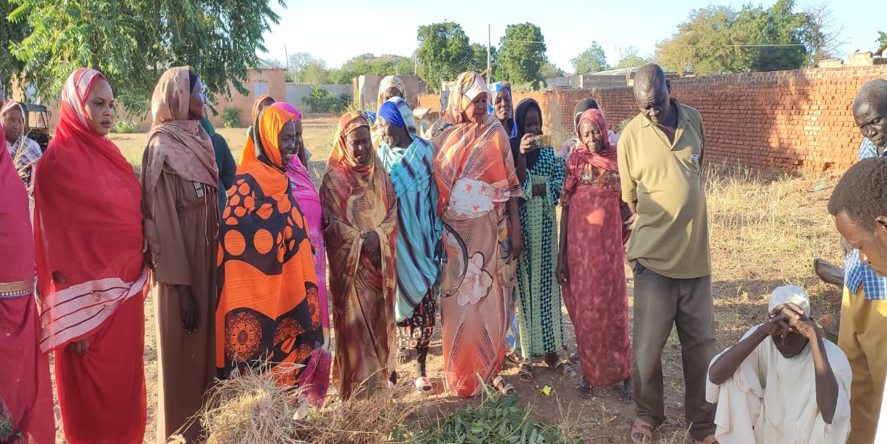
Stronger partnerships, innovation, and agile science for impact were resounding themes when CIMMYT researchers from the Sustainable Agrifood Systems (SAS) program in Africa gathered in Nairobi to develop the program’s implementation roadmap in alignment with the CIMMYT 2030 Strategy.
The three-day retreat from 25-28 March, attended by research teams from the eastern, western, southern, and Horn regions of Africa, provided a platform to share insights and chart a course towards sustainable agricultural development for the continent.
Routes to amplifying research impact
In her opening remarks, SAS Program Director, Sieglinde Snapp, emphasized the importance of grounding the CIMMYT 2030 Strategy in the African context and the urgent need for actionable plans to address pressing challenges in agrifood systems. Snapp drew attention to the significance of collaboration with public, private, and civil society stakeholders, highlighting how inclusive partnerships are essential for driving meaningful change. She urged the team to focus on turning strategic vision into tangible plans, with clear milestones to track progress.
“Humanity pulled together and got to the moon in the 60s. Conventional science and engineering got us there,” said Snapp. “However, when we have high uncertainty and high-value conflicts, we need to have all stakeholders at the table. We need to do action science and think of what the actual science looks like.”
Christian Witt, senior program officer at the Bill & Melinda Gates Foundation, delivered a keynote address focusing on the importance of advancing agronomy globally and exploring opportunities at the national level. He advocated for a balanced approach to tackling macroeconomic challenges while fostering grassroots innovation that augments impact. He also underscored the CIMMYT 2030 Strategy’s critical role across CGIAR, calling for a pivot in funder influence towards a unified, demand-driven research methodology.

Deep diving into the strategy
The retreat also featured a panel discussion on the CIMMYT 2030 Strategy. From the value of strategic partnerships to the need for excellence in research and delivery, the panel highlighted the key pillars of CIMMYT’s strategy and underscored the importance of aligning efforts with global priorities and challenges.
Participants discussed the role of data systems for agile agronomy, noting the need for innovative methodologies to harness the vast amount of data available. They placed key focus on empowering farmers, particularly through initiatives like the BACKFEED Farmer Agency. This inclusive feedback system enables knowledge co-creation via mobile phones, fostering networking among farmers of diverse backgrounds. Regular and spontaneous interactions facilitate data collection, addressing social exclusion in agricultural information channels faced by those with multiple vulnerabilities.
Paswel Marenya, SAS associate program director for Africa, shared thought-provoking insights on the Pathways to Impact. He demonstrated how complementarity and bundled approaches, impact orientation, evidence-supported scaling, subsidiarity, localization, and training of farmers and communities, and inclusive seed systems, can transform food systems.
During an analysis of the strategy in the African context, central inquiry focused on identifying areas where SAS could deliver the greatest value. Discussions revealed a consensus on several key priorities: the need of developing and implementing policies from the ground up, addressing the specific needs of smallholder farmers, enhancing capacity for sustainable development, ensuring inclusivity for youth and women, expanding innovative solutions, and encouraging regional collaboration. These common themes highlight a united drive towards comprehensive and impactful agricultural advancement across Africa’s diverse landscapes.
On implementing the strategy, attendees discussed a range of plans and proposals:
- Diversify from maize to alternative crops, such as pigeon peas.
- Engage stakeholders in agile agronomy discussions to identify impact pathways.
- Train the private and public sectors for climate-smart agriculture.
- Address concerns regarding prevailing inefficiencies within the formal seed system and the lack of business models for non-hybrid seeds like groundnut or wheat.
- Identify opportunities for financial inclusion through aggregator and off-taker models.
- Consider the importance of mechanization policies, markets, and extension services.
- Engage strategically in the humanitarian-development-peace nexus, as the majority of food insecurity is found in conflict areas.
- Improve nutrition education and meet local demand for nutritious crops like pigeon pea and groundnut.
- Consider the role of data and analytics in humanitarian-development-peace pathways, policy engagement for building value chains, and the significance of impact pathways.
- Promote the importance of open science, data sharing, and addressing gaps between product enhancement and production.

Eyes on the future
In reflections at the end of the retreat, Snapp reiterated the importance of investing in soil resilience through agile agronomy and participatory research to foster collaboration and inclusivity in decision-making processes. She focused on the significance of foresight targeting and market intelligence, particularly in regions grappling with soil degradation and the impact of the climate crisis. Her presentation highlighted key priorities for driving impactful agricultural development, including effective data management, climate adaptation, and alignment of existing solutions with climate goals. The interconnectedness of foresight targeting, seed systems, and agile agronomy was underscored, emphasizing the importance of collaboration and addressing essential topics like nitrogen and climate change. Additionally, Snapp reiterated the crucial role of collaborative efforts between different teams and organizations in effectively advancing agricultural research and development initiatives.
To cap off three days of intense discussions and strategy-building, participants took part in fun team-building activities that echo CIMMYT’s core values of excellence, integrity, and teamwork.

 Climate adaptation and mitigation
Climate adaptation and mitigation 
